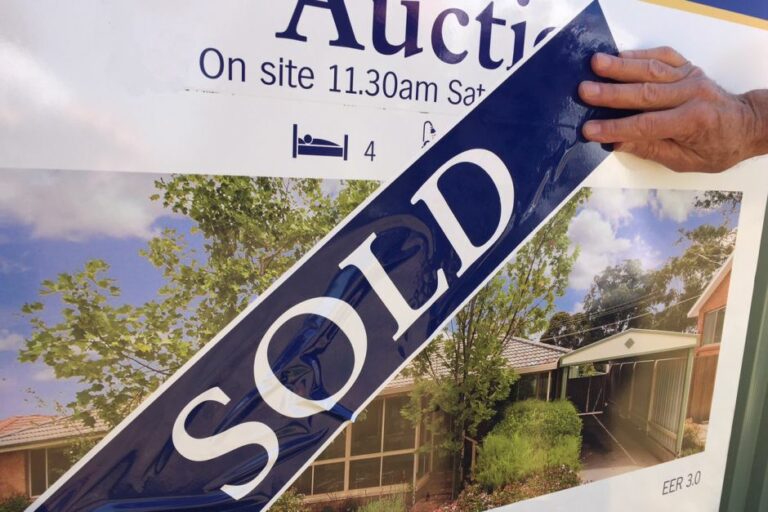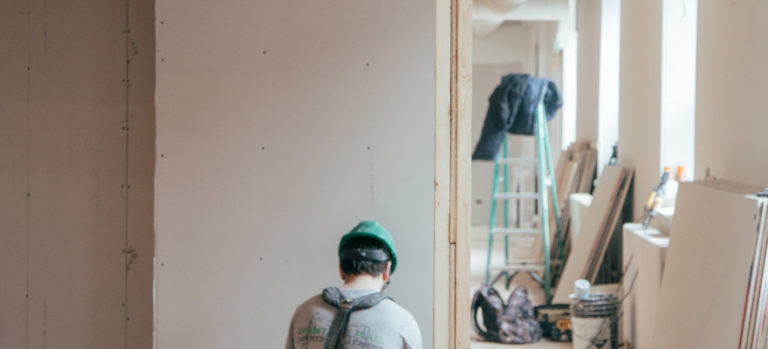James sits down with Adam Grbcic from Ray White Broadbeach to talk all things market trends and commercial property.
In this interview James and Adam chat about:
- The sectors with the most growth over the next 5 years
- Top tips for buyers looking for commercial property
- The best way to diversify
- The areas with the strongest demand
- Plus so much more!
Read on below for the full transcription of our interview:
– Hey, good day, everybody, James from mrkts.com.au here. And today, we are lucky enough to be joined again by Mr. Adam Grbcic, the head of Ray White Broadbeach commercial, here on the Gold Coast. Adam, thank you for coming in.
– Thank you, James, again.
– It’s been a very, very busy time on the Coast, actually, across the Australian property sector, but we wanted this time, when we’re talking to Adam, to start to drill into a little bit more detail. We wanna talk about what sectors are thriving at the moment, what are people interested in, how is the shift of the market changing how Adam does his job, and then, consequently, for you at home, how you’re gonna be purchasing property or looking at property to rent. So, we’ll try and dive right in, Adam, at your opinion of the market currently. I think it’s a good place, we’ll set the benchmark, and then we’ll work our way from there. So, the commercial market, what’s your opinion of it at the moment? I think now, on the Gold Coast, well, across Australia, Queensland, South East Queensland, and the Gold Coast, would be better this quarter than it has previously, and that’s because we’ve got the elections out the way, which causes uncertainty, regardless of which way it goes. I think that people get the advice from the people they trust, which are the accountants, lawyers, and any other financial advisers, on to wait until that period is finished. So, since then, we have been busier, and the Gold Coast, more specifically, we were busy, but it just depends what sector you’re looking in. I think that owner-occupied properties, owner occupying commercial property is busy, and freehold in commercial investments are probably the two busiest sectors at the moment.
– Okay, so they’re the front runners of what you’re listing and selling?
– Correct.
– Did it feel like there was a sense of relief after May, and everybody is sorted out all right, this is gonna be a Labor government with a big shift, and we’ll be treading water whenever there’s a change in government. And it sort of felt like everybody let out a deep breath and thought, “Okay, let’s get on with the job now.”
– Yeah, I think so, but I just think that the market puts himself in a position to fought of uncertainty during the election, regardless if Labor did get in, or Liberals get in.
– Correct.
– And I think that we just go business as usual once it’s over, because what happens is the media stopped talking about it and I think the media drives the confidence.
– Okay, so those owner-occupied’s were the front-runners, and what was the other one that you mentioned?
– I think that investors are ideally seeking freehold commercial investments.
– So, for those who don’t know what freehold is, very briefly, what is the freehold commercial investment?
– Not within a body corporate. So, a property where you own the land and the building, not just the building, within a body corporate.
– We find so many times, in property, it’s all in the names. So, freehold, very simple, you’re free, and holding that asset yourself.
– Correct.
– And not constrained by the ordinators, essentially.
– Correct.
– Okay, wonderful. So, what is areas have a stronger demand that you’ve noticed recently on the Coast?
– Suburb-wise, I think in your industrial properties, Burleigh is your strongest sector, or strongest area, sorry. And I think that’s just due to lifestyle and proximity to the major services and the beach. Commercial, I think people are still shifting away from Southport, and your popular precincts are probably Bundall and Broadbeach, and retail, I think retail is still suffering, there’s not really a hotspot for retail at the moment.
– That’s an interesting one. We got a couple of topics on that because retail is something that I’ve noticed in my conversations with different agents around town that it’s sort of a tough spot and no one really knows where it’s gonna stick, and how it’s all working at the moment. So, we’ll try and get a little bit more of your insight in that. So, that’s interesting, Burleigh for the industrial, then Bundall and what was it? Broadbeach for the commercial side of things.
– Yeah.
– Is there a supply there that people could be looking at or is it really quite tightly held?
– Both those precincts are sitting at around 10% vacancy. So, there’s still supply.
– And what vacancy, as an agent, would you like to see? Probably 5%, or–?
– Yeah, you have to have vacancy rates because without vacancies, the price gets driven up, and without vacancies, owners don’t get forced into renovating and turning, say a C-grade building to a B, or a B-grade building to an A. So, vacancy’s important to ensure that, yeah, number one, the price doesn’t drive up, and number 2, owners don’t get complacent, and buildings don’t get improved.
– Yeah, so investors, when they’re looking for key market indicators, vacancy would be one of those?
– Yeah, you wanna be in a precinct that has maybe between 5- and 10% vacancy rates.
– Yeah, excellent, fantastic advice.
– Well, as an investor, you would like a 0% vacancy because you drive your price up, but it doesn’t work like that.
– But so far, if you see the number five, or 5% to 10%, you know that you’re in a comfortable range to decide to–
– Yes, yeah.
– To have tenants.
– Okay, excellent.
– So, the commercial property market as a whole, where do you think it’s starting to lead itself? We were talking before, just before we started filming, that a lot of home offices are starting to pop up, people don’t necessarily have to even go to the office much anymore because of the advancements in technology that make it easier to work from home. So, were do you think that commercial property market is leading us?
– So, offices specifically?
– Yeah.
– I think that it’s been shifting for as long as I’ve been in real estate which is almost 10 years now. There has been a shift with people can fit more people into a small area. And people do have the option to hotspot from home. So, what you’ll see is the larger floor plates, people or investors that own those properties will have to look at splitting them up to provide multiple tenancies. There are very few companies on the Gold Coast that would need a full 100 square meter floor plate. Play that rule of thumb, you can fit one person per about eight square meters. So, I’m not very good at maths, but what’s that–?
– Don’t ask me.
– Don’t ask me.
– There’s not too many companies build between 30 and 50 staff.
– Okay, so, would it be industry driven then? So, say, for example, I know lawyers need to have office space ’cause they need guys in the office, with their logins and their working with materials and the files that are available on site, for security and privacy purposes. Is it industries that are going, “All right, Adam, we need this space, and we’re gonna take the larger spaces,” where other industries don’t necessarily need it?
– Yeah, but that will shift as well. Five years ago, people would look at bank tenants as the people that would never move because they’re got this huge investment and they fit out to have vaults and safes on their property to store the money, and now, some of, if you go to Surfer’s Paradise, there’s two vacant banks, where the vaults are still there because banks have adapted, and if there’s anybody that needs security and privacy, banks would be above lawyers and accountants in terms of what they needed, and they’ve shifted, so I think lawyers and accountants will do the same. So, those are probably the two industries where they’re seen as the people that need their own office.
– Yeah, so if you’re the owner of property, of commercial property, and you’ve noticed that, all right, I’ve had the property vacant for a couple of months now, let’s use Bundall as an example, it’s in Bundall, I know that it’s a good area, but I’m just not finding the businesses that are coming to take that space, would you recommend then maybe they need to tweek how the space is outlined and maybe making things smaller?
– Yeah, look at splitting it up to multiple tenancies, and looking at creating as much open space as you can.
– Okay, so, obviously, get the advice first. Speak to those agents in the area that are leasing it at the time, and then try and make those little changes to be different in the market.
– Yeah, well, a lot of owners say, “Well, find the right tenants, “and I will do the fit-out for them,” but tenants have got a timeframe they wanna be in the property by. So, there are some basics you can do to the property to make it more appealing for the tenants.
– Okay, excellent. Very interesting stuff. Where are we going then to see the biggest growth? In the next five years, which one of the sectors that you work in, whether it be industrial, commercial, or retail, do you think’s gonna have the biggest growth in the next five years?
– Probably industrial, and I think that industrial is not only, probably, your entry level asset class when it comes to commercial real estate, but a lot of businesses are converting industrial space into commercial office workstyle spaces. It’s cheaper, the locality of our industrial precincts are quite central, and people don’t necessarily need to be in commercial precincts.
– Yeah, so there’s that appeal to start to, what is the word? Repurpose property now?
– Yeah, it’s happened through Melbourne, Sydney, it happened America probably 10 years ago. And Gold Coast is just following that trend.
– I think they’ve been at it for a long, long time, the Americans, but that would be because of the scarcity of space, and when there’s a scarcity of space, there’s a necessity for change.
– Yes.
– And then you’ve gotta disrupt, or get left behind. And they’re very good at that. Okay, so the next five years, industrial, that’s your tip?
– Yeah, my tip, or looking if the stage three Light Rail does proceed, which there is a funding hesitancy at the moment through different levels of government, the last two stages, we’ve seen rezoning along that Light Rail, and if that does happen between Burleigh and the airport, I think anywhere on the Gold Coast highway will be good real estate.
– Is very good area, I agree with that whole heartedly. In the next five years, industrial being your tip as something that’s gonna add value and grow?
– Yeah.
– I suppose my question then, is there a sector in the commercial market that is underperforming? I think we were talking about retail being that sector. Is that the one that you’ve noticed may start to underperform?
– Yeah, retail, I think, will continue to struggle, and that’s because of two reasons. Number one, I think that the rents need to be reset, that if you take Surf Parade in Broadbeach as one example, those rents were really driven up, just due to a scarcity of properties, and then, all of a sudden, you had a renovation in the Oasis shopping center, a renovation of Pacific Fair, the casino added a multitude of retail and dining tenants, all those tenants dispersed, which left Surf Parade vacant, and those rents now have dropped probably 40%, and that’ll keep happening to different pockets on the Gold Coast, but I just don’t think that we have got the population for all these shopping centers to be filled with tenants, and these smaller retail pockets that we’ve got. So, I think we’ve still got a good five, 10 years, for either the market to reset the rents at an appropriate level where small businesses can make money, or a shift where we see that there’s a shift in the market and there’s ground for retail spaces maybe get used commercially.
– That’s an interesting thought. I think because of the positioning of these certain, say, where restaurants and cafes used to be, there isn’t a need for them anymore, but having a ground floor office space where people can enter and exit quite easily there in the center of the Coast, and then they’ll walk a bit further down to the new cafe that’s down the road. I think that kind of repurposing, like we touched on earlier, there’s a future there.
– Well, it needs to happen because there’s only so many restaurants that can make money in one spot, and what happens is they go into competition with each other, they all sell $10 lunches, great for the consumer, not great for the tenant to pay the landlord.
– Yeah, and that’s what we’re talking about, owning that property and trying to make the best or get the best return that you can for your property if you’re an investor. So, when you say rents reset, explain that to me.
– So, Surf Parade, the market rent in Surf Parade was $1,000 per meter. That was back in probably 20– say, 2007 to 10, 2010. Once those vacancies started happening, the rents from there have been probably reset, the market rent is probably between $600 and $700 a square meter, so there’s been a $30, a 30% reduction in rent. And so, the market rent has essentially reset to an appropriate level.
– And so, then, that’s the starting point. So, if someone’s coming to you and saying, “I know I wanna rent this space,” and you say, “Well, it’s 650, 700.”
– Yes.
– Okay, so that’s the resetting of it. So then, what path can it take to recover the retail sector? I think, as you’ve said, there’s a rent reset, but then, what other ways do you think would be viable for retail to reset itself?
– Someone could lobby to the Council to jump in and assist. I think that the Council, particularly in Broadbeach, has got a big responsibility because one of the reasons that Broadbeach, I wouldn’t say has failed, but has struggled was that there were so many renovation works that happened on that on that street. So, the local Council could create events and create foot traffic at times where those restaurants have potentially struggled. I mean, look at the Blues Fest, or any festival that happens through Broadbeach, you get an extra 10,000 people through those shops, and you help those small businesses, so, from a Council level, they can maybe be looking at the precincts which are struggling, and running community events and driving foot traffic there. It’s very hard to say from an investor level, but maybe owners with vacant properties need to look at maybe sacrificing the return to help the tenants get back on their feet.
– Well, then, as a landlord, when you’re speaking to those potential tenants, you should be asking those questions of, so how you gonna innovate? ‘Cause anybody can make a cup of coffee, there’s plenty of people up and down the street that are making cups of coffee. So, how are you are gonna be a bit different to draw people into your tenancy? Is that a conversation a landlord can have with a tenant?
– Yeah, he should, but then I guess–
– Well, through your agent, obvioulsy.
– Yeah, maybe the property manager should just be making a concerted effort to be keeping an eye on the tenant and when rents payments start coming in maybe late, you’re right, maybe step in and make sure that the operator is prepared for maybe a bad couple month’s trading, but I guess it’s difficult. You shouldn’t be telling a business how to operate their business, but if we as professionals can see a trend coming, maybe we could be giving that advice to operators, I think–
– That’s a good thought. So, industrial being the front runner, retail being the one that needs a re-jig and needs a bit of a reform?
– Yeah.
– So, keep your eye on that. Maybe if somebody comes across a retail property that has some underlying value there and they think, “Okay, well, it’s in a good position, “I’ll pick it up now, I’ll hang in there, if I can, “on the rental, and just hope that the tenants “that are coming in and out “can keep me paying off my mortgage, “and then I’ll be able to repurpose it,” maybe that would be a strategy?
– Yeah, 100%.
– So, speaking to agents, I just assume, then, speaking to multiple agents, and asking them, “Well, this my plan, “my long term plan,” is that a good strategy for purchases?
– Yeah, 100%. I would just be making sure that you don’t buy property that is so purpose-built for one user, you need to be able to diversify your options if you lose your tenant.
– Okay, diversification is an interesting point, and we’ll move on to that now because, I suppose, diversification is a word that’s used across the investment spectrum, whether it be… Well, it depends, in any discipline because you’re attempting to have a diverse range of different income producing industries in your one portfolio. So, how does it all work from a commercial property perspective? So, what’s the best way to diversify using commercial property?
– So, if you’ve got a property portfolio adding a commercial property into it?
– Yeah, I think so.
– Yeah, I think a base investment for a property investment is getting into residential. Residential property, obviously, is steady. The income is not as high on a return basis as commercial properties, but it’s very rare that your property’s gonna be empty for an extended period of time.
– And residential seem to be one that people understand, I think because you live in a house, or you live in a unit. You live in residential property, so you understand it, ’cause you were born in it, generally, unless you were born on the street. I don’t know anyone that owns property that was born on the street, but there you go. So, then, adding that commercial property in.
– Yeah, so you buy a residential property for constant income and capital growth. You buy a commercial property for a higher return. So, you really, it’s an income strain. You’re not gonna get massive capital growth on a commercial property, unless there is a massive swing in rentals, which is very unlikely.
– Unlikely because you’ll see it coming?
– Well, our leases are structured with a 3% increase, or a CPI increase. So, when you buy a commercial property, the increase on your rental is set on the lease. So, if you’ve got a five year lease your lease will either be a CPI increase or 3- or 4%. So, your growth is capped based on the lease.
– Okay, so from an advice perspective, when speaking to people about diversifying their portfolio and not just having residential in their portfolio, you would say, “Okay, start to look at the numbers “and see what your endgame is, “and work back from there.”
– Yeah.
– We were lucky enough to speak to your brother, actually, and that was his strategy. He said, “make sure you’re looking 20 years ahead, “10 years ahead, “see what your goal’s gonna be, “and then work back from your goal, “and then that will, hopefully, “attempt to assist you in achieving that goal.”
– Yeah, the conservative approach.
– I love it. Okay, fantastic. So, then, we like to do things in threes. So, a top three tip question coming up for you. Did you have something to say?
– No, no, hit me with a top three.
– It’s very strange, normally there’s something to say. Okay, what would be your top three tips to buyers searching for commercial property? So, if they’re searching, what would be your three tips for what they should be looking for? We can break it into sector, if that’s simpler, or are you happy with the overarching?
– No, I think you could go broad. I think I wouldn’t buy commercial property too far from where I live, because I wanna understand the market where I’m purchasing.
– Okay.
– I would ensure that, regardless of what property I bought, that, if I didn’t understand, I would engage someone to do the due diligence, and by due diligence, I mean make sure that the lease is actually legally binding, it’s actually on the correct lease, and that you get all the rental ledgers. That’s the most common and easy due diligents can do, is get proof that the tenant is actually paying the rent which is represented on the lease.
– Okay, very interesting insight, we’ll come back to that.
– So, it was buy where you live for the specific reason, do your due diligence, and, thirdly, try and buy something with multiple tenancies.
– Okay, excellent. So, there reason markets exist is so people are able to do their due diligence and figure that out for themselves, but if you wanted to bring somebody in to assist you with the due diligence, who would you recommend? Are there people specific to do that?
– Yeah, you could engage a solicitor, they’re very good from all the paperwork, but you can look at getting someone under a buyer’s agency and they can do that work for you, as well.
– Okay, interesting. So, the buyer’s agency come in, and then they, because they’re in the industry, they work their cold face, They understand how the industry operates, they can come in and do their due diligence to assist you?
– Yes.
– Fantastic, and then the rental ledgers, tell me a little bit more about that? What is a rental ledger?
– When someone’s paying rent, it’s just a record of to show that people have paid their rent every month, and the record of their monthly payments. So, if you get a rental ledger and someone’s been paying on the fifth, the ninth, the twelfth of the month, it could suggest that they have cashflow issue, and they’re not paying on time, but if they’re paying on the first of every month, on time, every time, in full, it gives you an indication that they’re a quite steady tenant.
– Okay, that’s very good advice.
– Well, your mortgage payments are due on a certain time, so you wanna make sure that your tenant’s paying you the money to offset that.
– So, if somebody is selling with a tenancy in place, which is the majority, I assume of the transactions you do, is generally with a tenant in place, unless it’s owner-occupied, as you said, and they walk in, walk out. You can ask the agent for the rental ledger and they should supply it?
– They should supply it, I wouldn’t give a tenant’s rental ledger to a purchaser if they weren’t under a due diligence because it’s quite personal. So, secure the property, and you can ask that question you can ask under your due diligence period.
– So, follow the right steps, but when you’re at that due diligence period, or in that due diligence section, make sure you’re asking for the rental ledger. That would summarize that advice.
– Yeah.
– They’re very good points, Adam. Very, very good points. So, then, when it comes to management rights and things like that, should people be asking, if it’s not freehold and it’s strata titled, I assume they’d wanna look at the involvement of body corporates in that scenario, is that how it works?
– I’ve got no idea about manager rights.
– Oh, no, but I’m talking about commercial property. So, if there is strata titled commercial property, let’s just say there’s five tenants in one building, does that then come under some kind of body corporate structure for commercial property?
– Yeah, if it’s a freehold, and you own all five.
– Okay, explain that to me. So, if there’s a building, an office building, let’s say there’s five stories of the office building, each story is owned by a different individual. How’s the building managed?
– Through a body corporate, and global body corporate manager.
– Okay, so then if that is a scenario for somebody, I take it they’d have to make sure they get a copy of the bylaws and read through–
– Yes, so when you buy a property in a body corporate, we have to provide a disclosure statement, and in that disclosure statement it tells you the contributions towards the body corporate, and it’ll give you a copy of the bylaws if you request them, as well.
– So once again, under your due diligence section, so when you’re in those top three tips, you find your location that’s suitable to you, near you, so you understand the market and you’re immersed in it, then you get to the due diligence period, and you’re asking all of those questions, or at least getting people to assist you and advise you on what questions to ask, and one of the main point during the due diligence, is making sure you get a copies of the rental ledgers.
– Correct.
– Fantastic advice, Adam, excellent. Okay, if you can believe it, we’ve actually, I think we’ve really drilled down into some very important stuff, and I think that’s all we have time for today.
– Perfect.
– You know, I never thought I’d say that line to another individual, that’s all we have time for today, but there you go. Thank you, Adam, for your time. We really appreciate it. If you’d like to see a copy of the full interview, make sure you visit the YouTube, or you can head to mrkts.com.au website, or in the Facebook group, which is the property education hub. Stay tuned, there’ll be far more content covering something more specific, like we’ve had today, and I look forward to talking to you soon.









